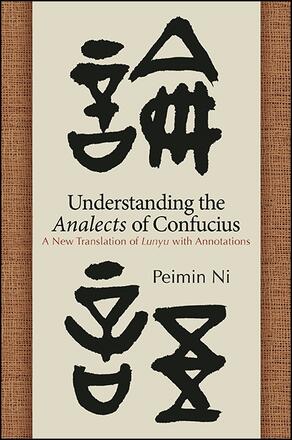
Understanding the Analects of Confucius
A New Translation of Lunyu with Annotations
Alternative formats available from:
A new translation and commentary of the Analects for contemporary audiences.
Description
Winner of the 2019 Aldo and Jeanne Scaglione Prize for a Translation of a Scholarly Study of Literature presented by the Modern Language Association
The Analects of Confucius is arguably the single most influential work of China's cultural heritage. In this new English translation, Peimin Ni accomplishes the rare feat of simultaneously providing a faithful translation of the text, offering his own reading based on gongfu (practice) perspective, and presenting major alternative readings to help the reader understand how diverse interpretations and controversies arise. In addition to the inclusion of the original Chinese text, Ni adds a comprehensive introduction, a discussion of key terms, annotations, and extensive cross-references. In doing so, Ni makes the text accessible and engaging for today's audience.
Peimin Ni is Professor of Philosophy at Grand Valley State University. His books include Moral Cultivation and Confucian Character: Engaging Joel J. Kupperman (coedited with Chenyang Li), also published by SUNY Press.
Reviews
"To date, there are about forty complete English translations of the Analects. Any new translation that adds to the existing stack faces the challenge of presenting something new and interesting about the text while not sacrificing the faithfulness to the original … Understanding the Analects of Confucius accomplishes this feat impressively … Ni's translation is a valuable contribution to the field." — Reading Religion
"Understanding the Analects of Confucius is an outstanding work of sinological scholarship." — Henry Rosemont Jr., author of A Reader's Companion to the Confucian Analects
"Peimin Ni's translation of the Analects has many virtues that make it stand out as an exemplary version of this most important Chinese text. Ni has chosen to present the text as a living document, embedded in two thousand years of commentarial conversation over its meaning, with today's readers very much part of that ongoing conversation." — Stephen C. Angle, author of Contemporary Confucian Political Philosophy